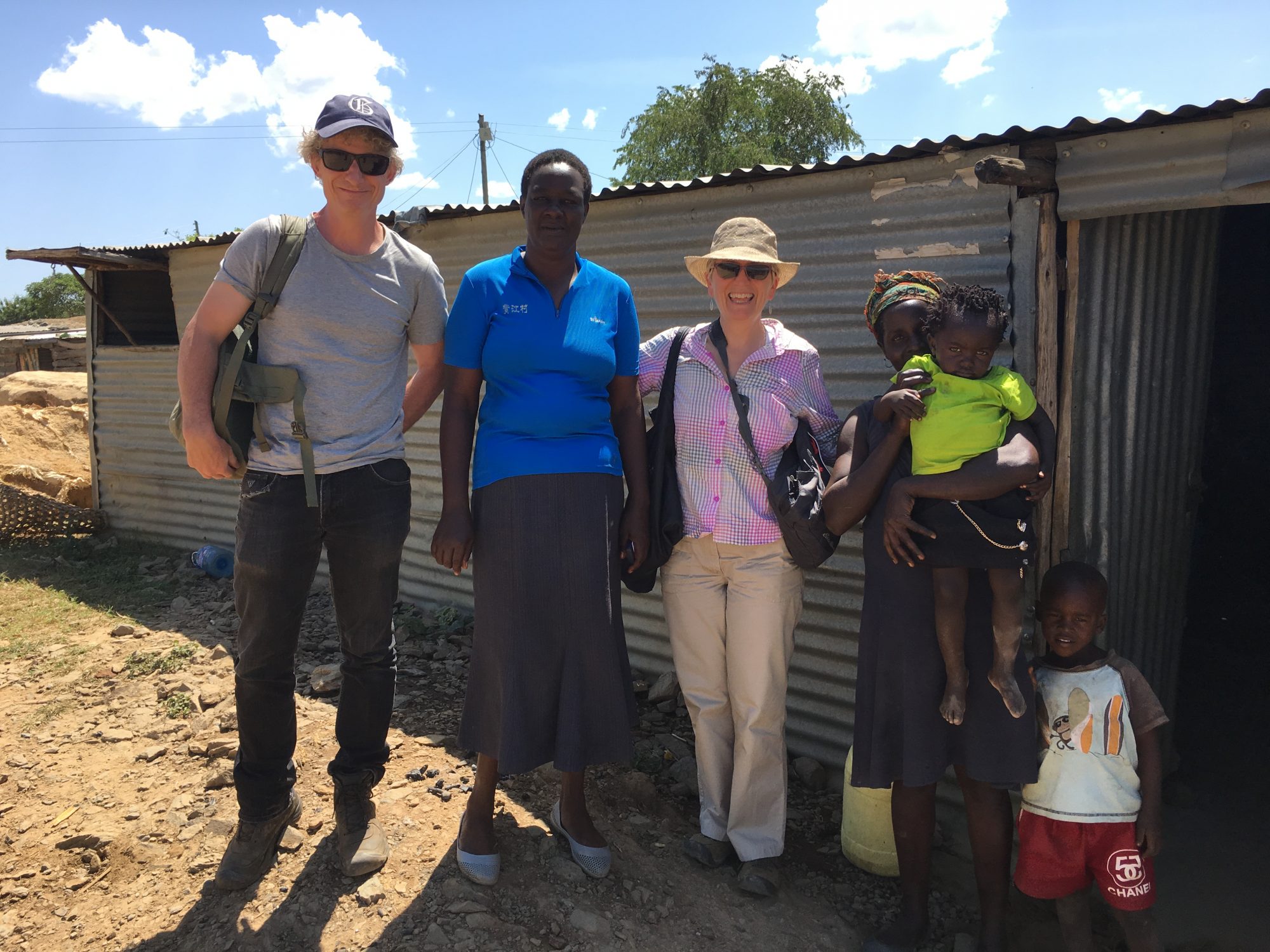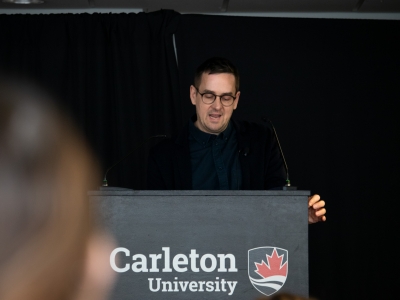
Carleton Professors Blair Rutherford (left) and Doris Buss (second from right) pose with Pamela (second from left), the owner of a small mining business, and her family.
Law and Legal Studies Professor Doris Buss has devoted years to studying the tens of thousands of women who work in artisanal and small-scale mining in Africa. Along with Professor Blair Rutherford in the Department of Sociology and Anthropology, she has created an international, multidisciplinary research team in six African countries. They have been supported by several grants, and most recently a 2018 SSHRC Partnership Development Grant worth nearly $200,000.
“Professor Buss and her colleagues are at the forefront of research on this topic, which directly affects the wellbeing of tens of thousands of women,” said André Plourde, Dean of the Faculty of Public Affairs. “We are pleased that this important research has been recognized by the Social Sciences and Humanities Research Council.”
The research team is creating an urgently needed gender analysis of small-scale mining to keep up with the rapid regulation in the mining sector. Their goal is to work with policymakers and community members to ensure that reformed laws and policies will better address the reality of women’s mining work.
“There is a real push to ensure women’s equality is being included in a number of policy areas, including mining,” said Buss. “This is an important development because mining, somewhat counterintuitively, has important impacts on women. The problem is that while there seems to be some political will to ensure new laws on mining include and benefit women, there isn’t a lot of clarity about how to do this. This is where our project comes in.”
Artisanal and small-scale mining (ASM), employs an estimated 10 million people in Africa; 40 to 50 per cent are women.
“We are excited to draw on partners in Canadian and African universities, African civil society organizations and multilateral organizations for our research on gender and artisanal gold mining in Kenya, Sierra Leone and Mozambique,” said her colleague, Blair Rutherford. “This is a great opportunity to mobilize our research in ways that support initiatives concerning mining and gender in sub-Saharan Africa.”
This project aims to deliver training adapted to the specific needs of those who are engaged in developing policies on gender and resource governance.
Buss and Rutherford have been collaboratively researching women’s livelihoods in artisanal and small-scale mining in a number of African countries, gathering data on women’s activities in ASM, as well as the gendered organization of mining and resource governance in sub-Saharan Africa.
These research results are emerging at the same time that policy-makers are developing interventions to regulate ASM, increase its economic potential and address environmental, labour and social problems. Despite the significant role of women in artisanal mining, efforts to regulate the sector in sub-Saharan Africa appear to be designed without consideration of the impact on women’s economic roles.
Thursday, June 14, 2018 in Department of Law and Legal Studies, General, Groundbreaking Research, Institute of African Studies, News
Share: Twitter, Facebook



